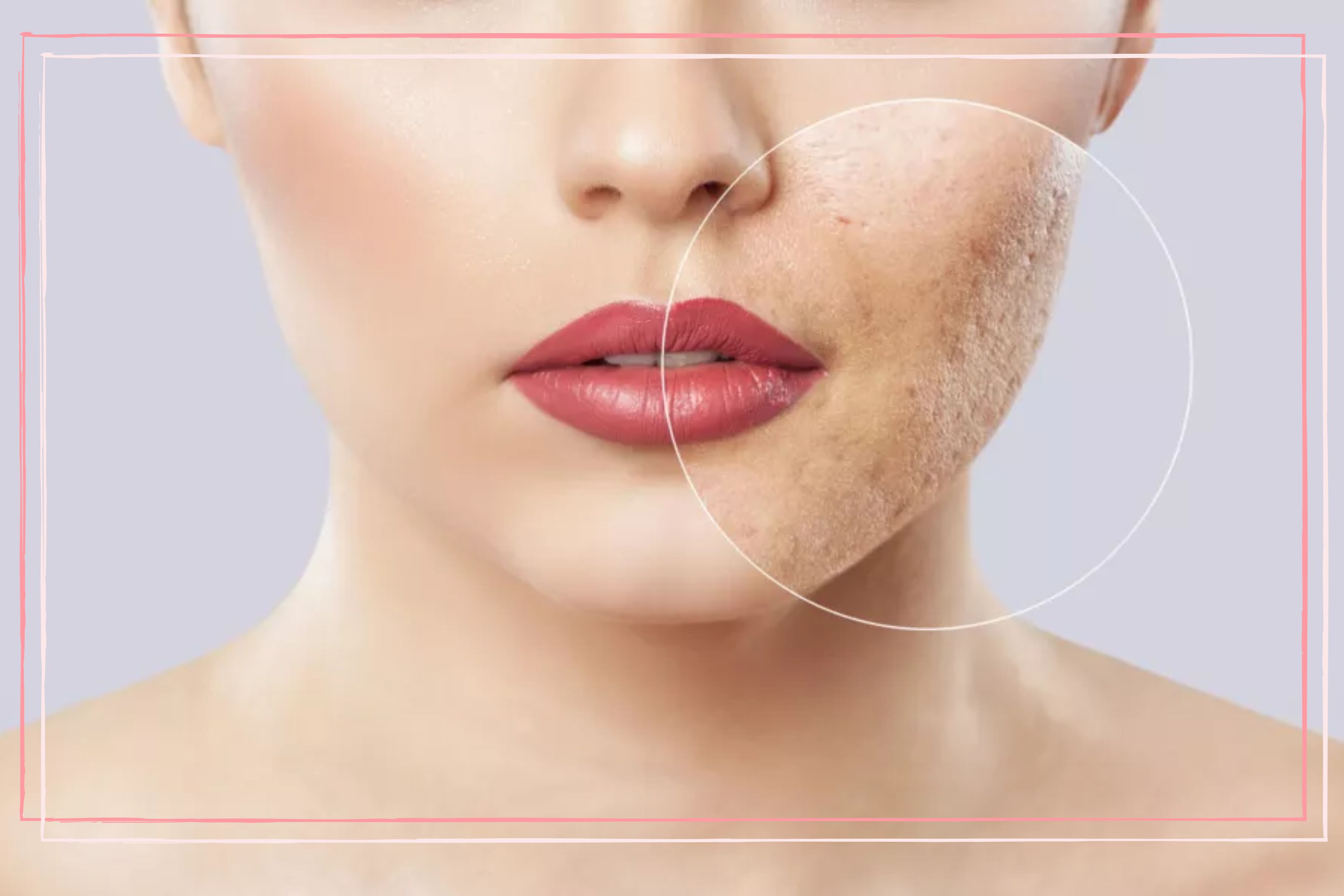Effects of alcohol on skin and 6 expert-approved tips for repairing the damage
Over indulging in alcohol can not only leave you with a sickly hangover in the morning, but it can also play havoc on your skin.

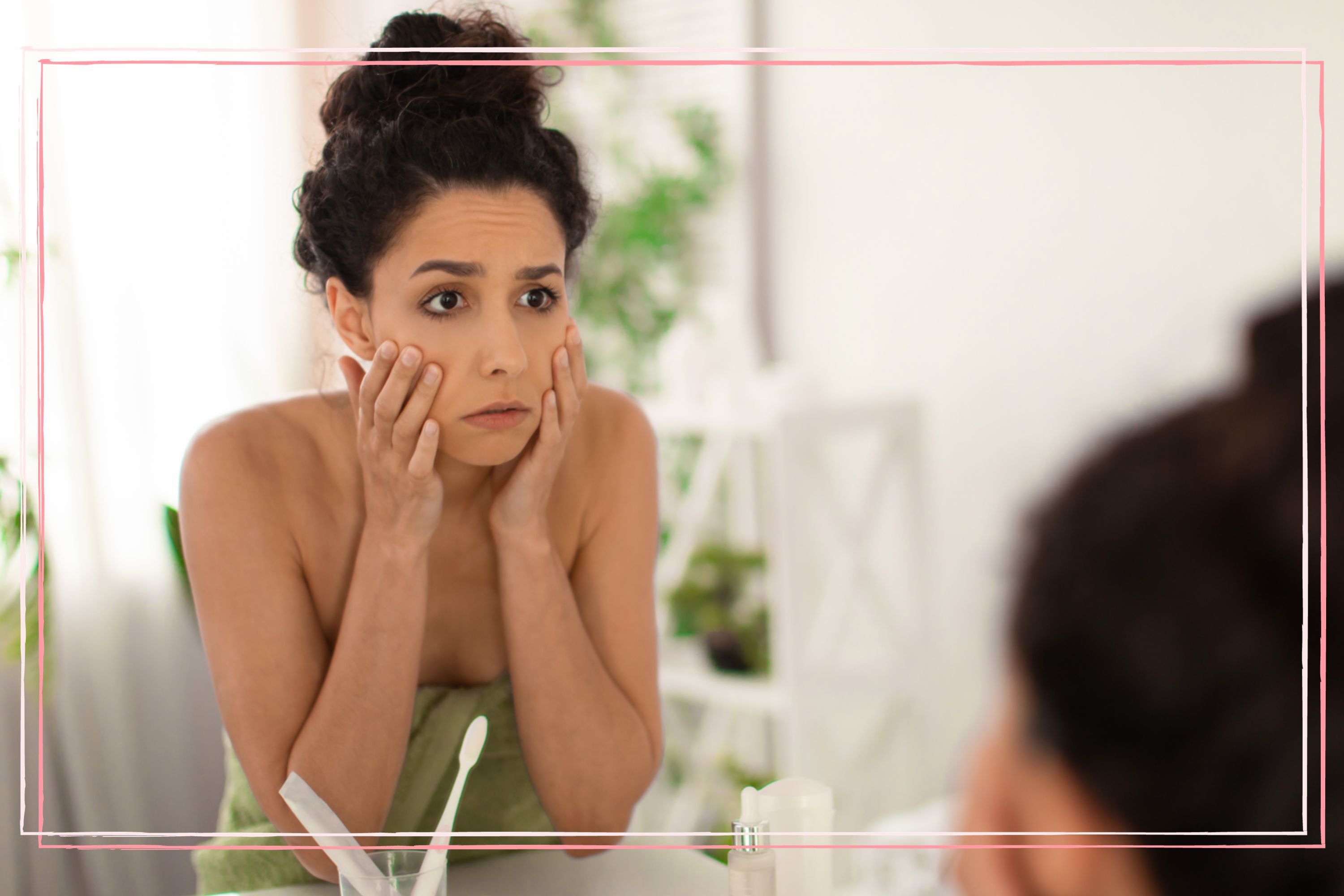
The effects of alcohol on your skin range from redness and puffiness to acne. Learn how to reverse the damage with some guidance from the experts.
There are so many health benefits of not drinking alcohol, but not everyone wants to give up alcohol completely or give non-alcoholic wine a go. But if you do enjoy a regular tipple on your night off from looking after the kids (or once they're asleep after a stressful bedtime), you may have noticed some of the negative effects that drinking can have.
From dullness or redness to enlarged pores, blotchiness, and puffiness - we've explored how breaking down alcohol in the body can trigger some unwanted side effects on our skin. Fortunately, skincare and medical experts have come to the rescue and explained how to reduce these - plus the drinks you need to steer clear of if you're prone to boozy breakouts.
"Any alcohol will negatively impact the quality, appearance and ageing of your skin," explains Dr Ioannis Liakas, Medical Director at Vie Aesthetics. "However, if it's something you are not willing to give up, there are some types of alcohol you can indulge in without feeling too guilty about its effects on your skin."
What are the effects of alcohol on skin?
Drinking alcohol results in two things: dehydration and inflammation. Both these effects can make a difference to the feel and appearance of your skin, and we've broken down how to spot the signs below.
The effects of dehydration from alcohol:
- Loss of elasticity, leading to wrinkles and sagging skin
- Dryness
- Dullness
- Enlarged pores
“Alcohol is known to dehydrate the skin, depriving it of the moisture and nutrients it needs to keep our complexion looking radiant, supple and youthful," says Dr Rita Rakus, Cosmetic Doctor.
Parenting advice, hot topics, best buys and family finance tips delivered straight to your inbox.
"As alcohol is a diuretic, meaning that it actively draws water away from the body, significantly lowering the body’s water level," she goes on to explain. "It removes the fluid in the skin which can increase the appearance of wrinkles, dryness and sagging skin, and dehydrated skin can look unhealthy both in its colour and texture."
According to Dr Liakas, dehydration can also lead to congestion, "Dehydration due to alcohol can also dilate the pores of the skin, leading to an increase of blackheads and whiteheads. If this is poorly treated, it can go on to cause acne and rosacea. In the long term, this ages skin and can cause permanent scarring."
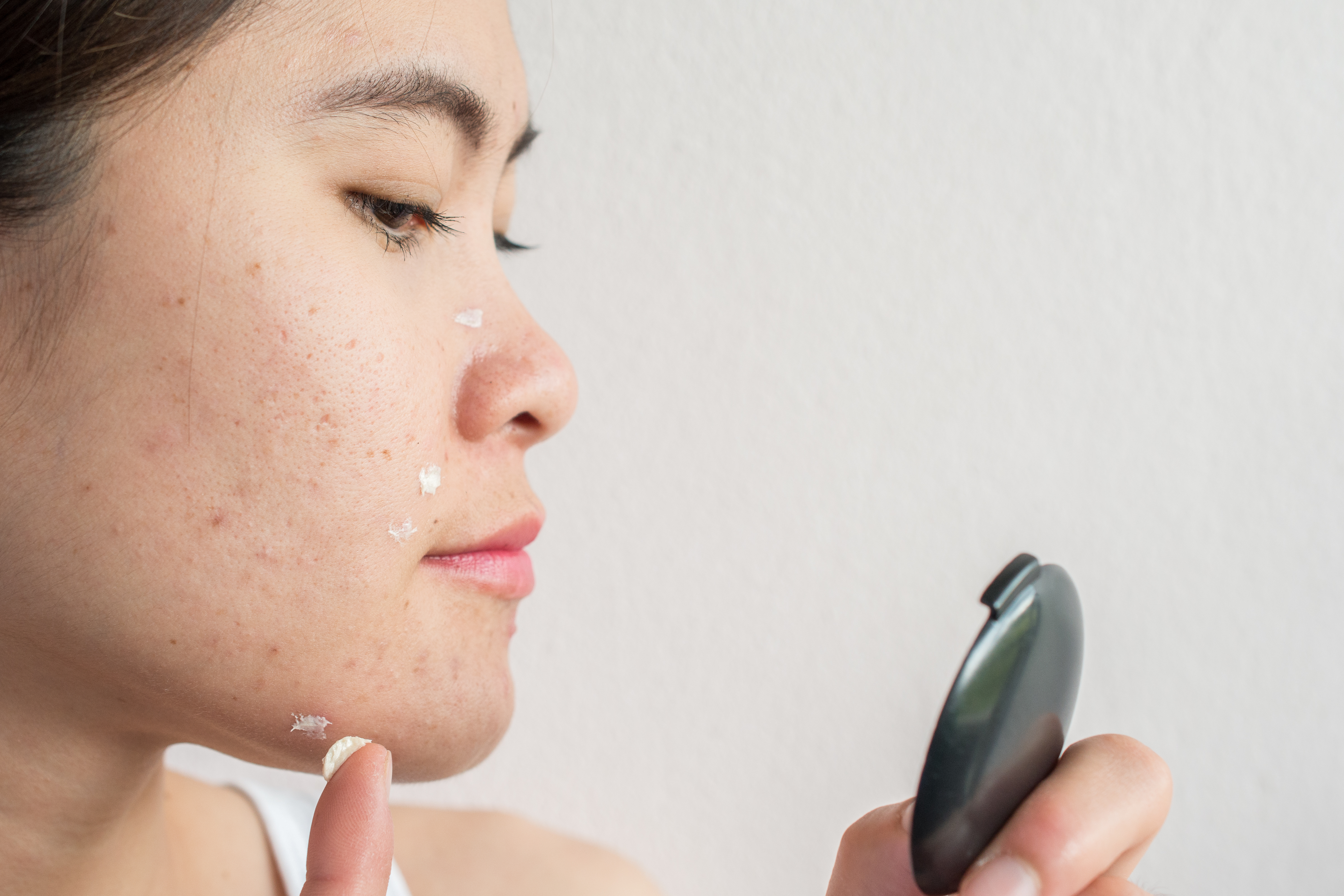
The effects of inflammation from alcohol:
- Increased redness or flushing of the skin
- Acne
- Blotchiness
- Puffiness
- Rosacea
GP and online doctor at MedExpress, Dr Clare Morrison, sheds some light on exactly how inflammation can cause skin issues. “Alcoholic drinks, notably cocktails and wine, are incredibly high in sugar, and this will show on your skin if you are consuming more than the recommended amount. Sugar [in alcoholic drinks] has been shown to trigger the hormone IGF-1, which causes an overproduction of oil in your skin, increasing your chances of breakouts or acne.”
Dr Morrison adds that if you suffer from the skin condition rosacea, alcohol will likely exacerbate your symptoms. “Rosacea is a condition that is triggered by alcohol consumption – especially red wine – as it’s an inflammatory condition, so when we drink alcohol we’re increasing chances of a flare-up," she says.
"Alcohol consumption is also a culprit for causing inflammatory signals within the skin causing redness and flushing due to its vasodilatory effect (it opens up the blood vessels and increases the blood flow above the normal levels)," explains Dr Ana, Aesthetic Doctor at Kat & Co. "It is also well known for leading to fluid retention and puffiness across the face."
With continued alcohol use, a 2021 study by the Department of Dermatology at the University of Connecticut School of Medicine revealed that "Alcohol misuse can present with jaundice, pruritus (itchy skin), pigmentary alterations, urticaria (hives), hair and nail changes, and oral changes. It is also a risk factor for skin cancer and infections." So, alcohol is certainly a substance that should be consumed in moderation or better yet, not at all!
The best and worst alcoholic drinks for your skin
It’s fair to say that some alcoholic drinks have more of an impact on the skin than others and Dr Ana tells us, "The higher the alcohol content the worse the impact on the skin, therefore it is important to stick to the recommended consumption levels."
With Dr Ana's help, we've ranked different types of alcohol from worst to best for your skin below.
1. Dark spirits
Dark spirits, such as whiskey and brandy, contain congeners – chemicals such as tannins and methanol which are created in the fermentation process – and these make hangovers worse. In fact, dark spirits generally make for the worst hangovers and are the worst culprits for bad skin.
The alcohol content or ABV (alcohol by volume) is generally higher in dark liquor too and according to Dr Ana, dark liquors have, "the highest alcohol content," meaning their effect on skin can be much worse than other drinks.
2. Red wine
Despite red wine being hailed as the ‘healthiest’ choice of alcohol because it contains antioxidants, it is actually one of the most damaging alcohols for your skin. This is because red wine tends to be unfiltered. According to Dr Ana, "Unfiltered red wine requires higher levels of processing by the body."
Essentially, the liver and kidneys have to work harder to process it, and it’s the most likely booze to cause flushing, redness, and blotchy skin – which is bad news if you already suffer from a skin condition that causes redness, such as rosacea.
3. Cocktails
Everyone loves holding a fancy cocktail glass in their hand, but your faves like Pornstar Martinis and Cosmopolitans are also bad news if you want to keep a clear complexion. The high sugar content in most cocktails can lead to inflammation, which increases cell damage and is a cause of acne.
Dr Ana explains, "Cocktails are extremely high in sugar levels leading to glycation." Glycation is a natural process in the body in which sugar molecules attach themselves to proteins including collagen and break them down. This means loss of elastin and more wrinkles.
In addition, the high sugar levels of cocktails can also leave skin looking dull and sallow. So next time you’re perusing the menu on a night out, bear in mind that a Margarita is the worst offender as it contains sugar and salt, both of which can leave skin puffy.
4. White wine
Unfortunately, white wine tends to be high in sugar too, just like cocktails. "The high sugar content of white wine leads to decreased levels of GAGs (Glycosaminoglycans - these support the proteins of our cells) which in turn, breaks down collagen and elastin," explains Dr Ana.
Like cocktails, the high sugar content in white wines can also lead to dull, sallow skin and puffiness - the last thing you want for your face.
5. Beer
Although beer isn't ideal for the skin, according to Dr Ana "Beer is filling, so the amount consumed tends to be limited and it has some antioxidant benefits."
Meanwhile, research from the scientific journal Biomolecules explains that beer "contains a variety of compounds that offer both appreciated sensorial characteristics and health advantages." But this doesn't mean it's good for you. The antioxidants found in beer are limited and it should still be drunk in moderation.
6. Clear spirits
Lighter coloured drinks such as vodka, gin and tequila contain the least amount of additives and are processed by the body quickest. This means that they should have the least impact on your skin, minimising potential damage.
Dr Liakas suggests, "Clear spirits can be categorised as the ‘better’ alcoholic beverages for your skin. Gin is made of juniper berries which are labelled as ‘super foods’, ergo can improve blood circulation to the face, providing a youthful appearance for some individuals. Vodka, on the other hand, is associated with combating signs of blackheads, tightening pores and disinfecting the skin."
Although you may still suffer a hangover the next day, drinking lighter drinks may minimise your suffering slightly (and the amount of bacon sandwiches you have to consume!) because they don’t contain congeners. In fact, a study by the British Medical Association found bourbon is twice as likely to cause a hangover as the same amount of vodka.
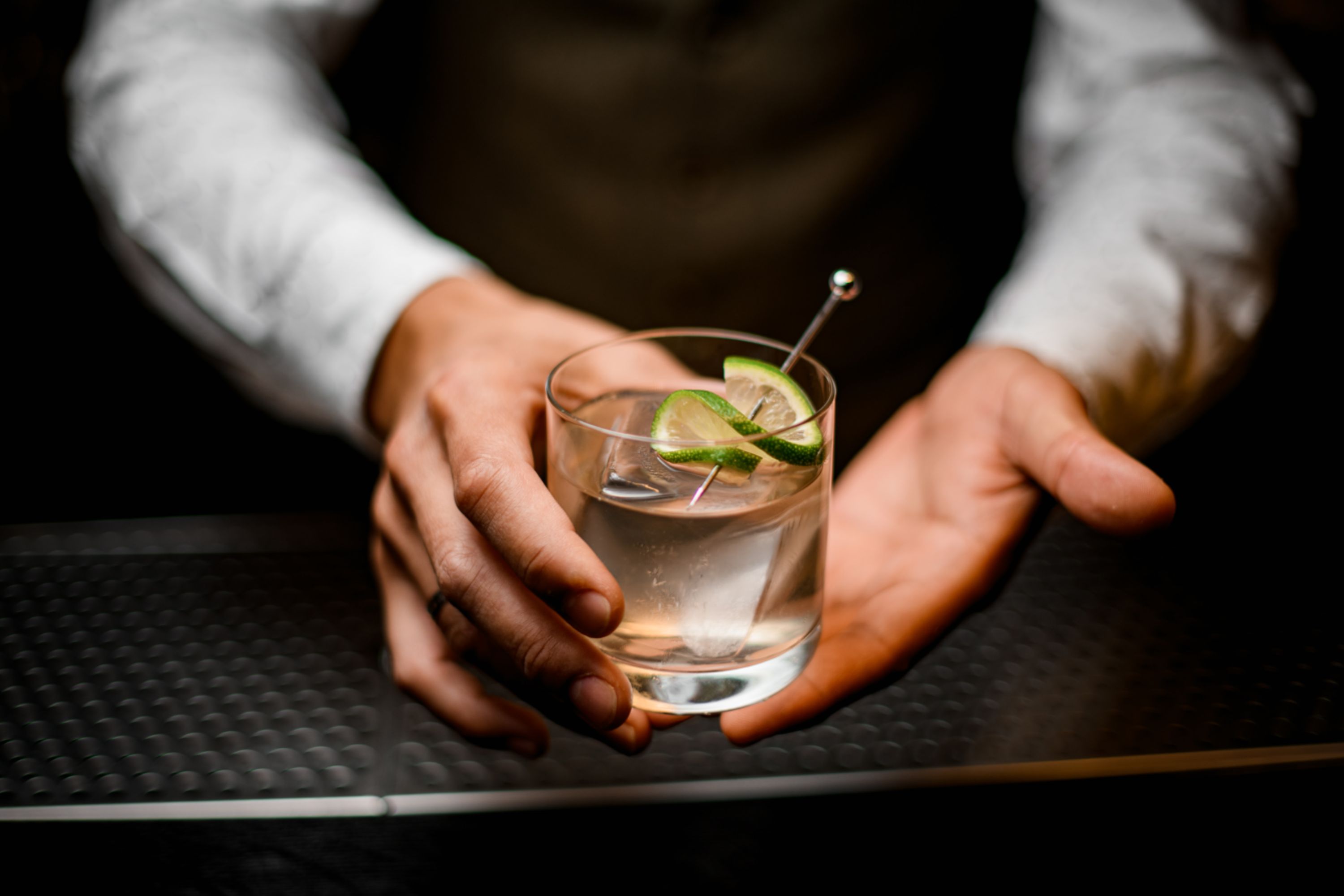
How to reduce the effects of alcohol on your skin
1. Stay hydrated
It may sound like an obvious one, but one of the most important things you can do to help your skin is to drink enough water.
Faye Purcell, Development Chemist at Q+A skincare suggests that drinking a pint of water after a night on the booze is a simple step you can take to reduce the effects of alcohol on your skin - and it will help with the headache the next day too.
"Dehydrated skin needs to be treated from within, and plain and simple water is your best option," explains Faye. "So, drink up before bed, and keep as hydrated as you can the next day. Leave a pint of water by your bed and drink it before you go to sleep. The next day, try infusing your water with cucumber, citrus or mint for an extra antioxidant boost."
2. Exercise regularly
As well as keeping your body in shape and taking care of your general health, exercise improves the blood flow throughout the skin, helping to keep it looking healthy, juicy and plump.
Dr Liakas agrees, "One of the ways you can improve the effects [of alcohol on the skin] is by exercising regularly. This can take care of your health from within, helping to improve the blood flow throughout the skin and enabling it to look healthy, silky and plump." Get sweating with a fun workout and this will clear your pores too.
3. Include supplements into your diet
Alcohol can drain the body of vitamin A, which is the vitamin responsible for cell turnover. So, by taking a daily supplement you can help to encourage the cell regeneration process that you’ve inhibited by drinking alcohol. You can also take a supplement dedicated to keeping your skin, hair and nails healthy, which can also help repair any skin damage. Other supplements that can restore the balance to your skin include vitamins C, E, B1, B6, B2, B3 and Omega 3.
"Including supplements into your diet can encourage regeneration of cells which is often blocked if excessive drinking takes place," says Dr Liakas.
4. Drink non-alcoholic alternatives
Just because you're not drinking booze, it doesn't mean you can't enjoy a fancy cocktail. Known as a 'mocktail', most bars and restaurants will offer non-alcoholic alternatives to the cocktails on their menu.
There are also plenty of non-alcoholic beers and wines on the market, so if you're serious about cutting down your alcohol intake but still want something a bit more exciting than water, there;s lots to choose from.
5. Do your skincare before bed
This applies to everyone, whether you're drunk or sober. We know it's tempting to climb straight into bed after a late night, but your skin will thank you for giving it the attention it needs.
“We know your usual skincare regime may go out of the window following a night out, so if you only do one thing after cleansing, apply a rich moisturiser that contains antioxidants and ingredients that help soothe and hydrate,” advises Faye.
She adds, “Applying calming and ultra-nourishing ingredients should be a priority. You want to look out for ingredients called humectants which will draw moisture from the air into your skin to replenish your cell's water levels and work best when applied to damp skin. Look for hyaluronic acid, glycerine and panthenol (Vitamin B5) on the ingredients list of your products.”
Dr Liakas agrees, saying, "Doing your skincare before bed applies to everyone, but it is especially important when skin damage is evident from drinking. It is recommended to cleanse thoroughly and apply a rich moisturiser which contains antioxidants and ingredients to help soothe and hydrate your skin layer. Calming products are always a safe choice to ensure any redness or inflammation is controlled and taken care of."
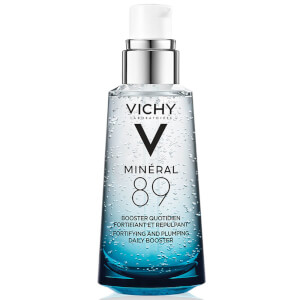
This hydrating serum drenches skin with long-lasting moisture by combining hyaluronic acid with VICHY’s highest concentration of Volcanic Mineralizing Water, rich in minerals. The lightweight gel texture of the serum is soothing upon application, supporting the skin’s natural barrier and defending against pollutants - and the effects of a hangover.
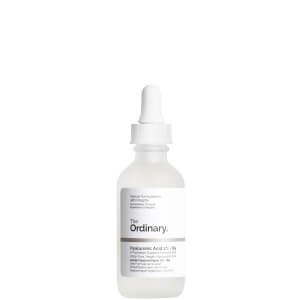
This lightweight serum provides powerful hydration with vitamin B5 and hyaluronic acid - renowned for its ability to attract up to 1000x its weight in water - to enhance surface moisture when skin is feeling dry and dehydrated. The refreshing oil-free formula is perfect for using before your moisturiser to give your skin a super-hydrated and plumped appearance.
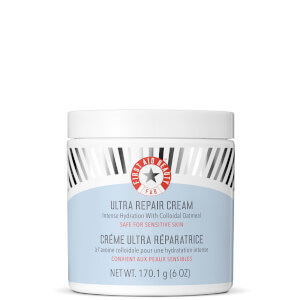
A coveted moisturiser among skincare fanatics, this award-winning formula intensely nourishes skin with a soothing effect for up to 24 hours. Powered by colloidal oatmeal, the hero ingredient works to visibly strengthen the skin’s moisture barrier, while shea butter and ceremide 3 utilise their nurturing properties to condition and smooth the feeling of flakiness.
6. Sleep with an extra pillow
Believe it or not, sleeping with two pillows in bed slightly propped up is one of the best ways to minimise eye and face puffiness. This is because eye bags can be caused by fluids that tend to pool in the under-eye area if your head is lying flat, leaving you looking for ways to get rid of dark circles.
Dr Ana recommends catching up on sleep after a night out and putting an extra pillow down too. "Ensuring a good night's sleep and avoiding becoming run down will be beneficial. Sleeping propped up may also help to reduce fluid accumulation and puffiness across the facial tissues in particular, the eyes," she says.
dark roomIt also helps to sleep in a cool, darkroom. Studies have shown a direct link between core body temperature and sleep quality, concluding that cooler temperatures do not interfere with the body’s natural REM cycle.
When you’re able to get a good night’s sleep, your skin and body can much more effectively recharge, allowing you to wake up looking less tired.
What happens to skin when you stop drinking alcohol?
Whether you decide to cut down on drinking or completely stop, avoiding alcohol is inevitably going to be great for your skin. Dr Liakas explains, "Once one decides to stop drinking or cut down on the consumption of alcohol in general, it can have great positive impacts on your skin. The skin will look more hydrated, plumper and brighter."
Your body is an amazing regenerator and the negative effects of alcohol can be reversed if you act in good time. "Wrinkles, pores and acne can be improved if you decide to put time and effort into your daily lifestyle and skincare regime," Dr Liakas says.
Here’s what will happen to your skin when you quit drinking:
- Hydrated, plumper skin
- Fewer wrinkles
- Brighter skin
- Smaller pores
- Excessive redness will disappear
- Acne may improve
- Skin tone becomes even
- Puffiness subsides
- Flare-ups of rosacea become more infrequent
Anna Bailey stopped drinking alcohol in 2019 and has noticed a dramatic improvement in her skin. "I'm so much happier with my skin since I stopped drinking," she said. "I used to spend a fortune on skin creams and facials, and they'd barely make a difference. But quitting alcohol, even in just the first couple of weeks, had a dramatic and instant effect on my complexion."
"I have less fine lines, smoother skin and the vertical crease between my eyes, which was also SO much worse when I was hungover, has disappeared. I've also noticed small bumps on my skin and raised freckles seem to have shrunk down. I no longer suffer from 'drunks dawn' - waking up at 5am with a hangover - so my beauty sleep isn't interrupted and I don't look or feel as tired as I used to. When I was hungover, I couldn't resist gorging on sweets and greasy takeaways - and I'm sure cutting down on these has really helped as well."
Continue reading
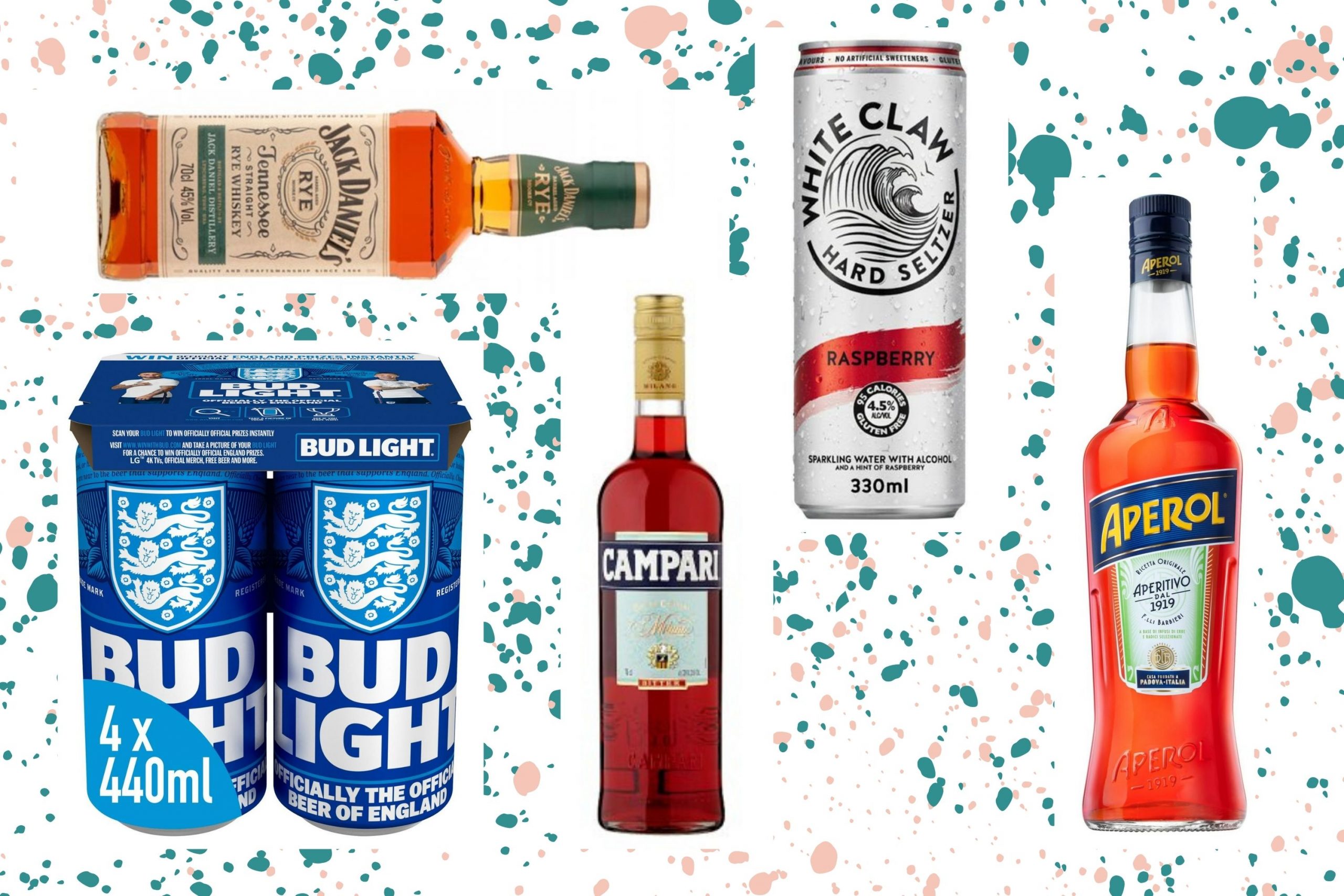
18 of the best low-calorie alcoholic drinks.

8 expert-approved tips to prevent a hangover.

Emma North is a Senior Beauty Writer who works for digital titles including woman&home, Woman, Woman’s Weekly, Woman’s Own, Chat and GoodtoKnow. Emma’s career in beauty journalism began with internships at publications including Vogue, Elle, The Telegraph and Glamour while she undertook a degree in journalism. She was then taken under the wing of Funmi Fetto, Contributing Beauty Editor at Vogue where Emma assisted with Funmi’s debut beauty book, Palette
